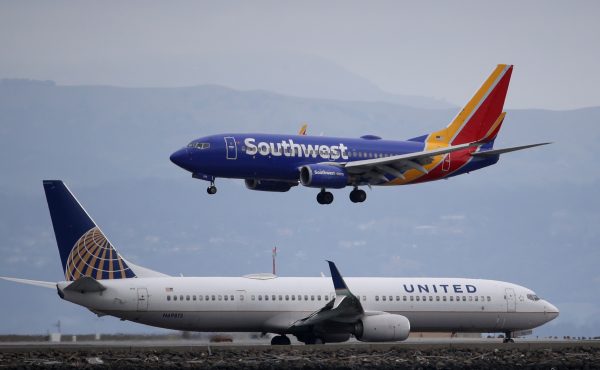Airlines have laid off a devastating number of employees — will it get worse?
Signing up for credit cards through partner links earns us a commission. Terms apply to the offers listed on this page. Here’s our full advertising policy: How we make money.
When the coronavirus pandemic exploded in March 2020, the airline industry suffered a massive blow after lawmakers implemented stay-at-home orders and travelers avoided flying due to fear infection. Before the outbreak, U.S. airlines carried more than 2.5 million passengers and 58,000 tons of cargo each day, according to Airlines for America. Now, nearly six months later, passenger volumes are down 70 percent, with one-third of U.S. airlines’ fleets parked in airfields across the country.
Although passenger numbers are beginning to slightly rise — the Transportation Security Administration reported 968,673 passengers went through security screenings on Friday, Sept. 4 — those numbers are still less than half compared to the same time last year, even with the many coronavirus protocols in place to help protect passengers.
“It’s really dramatic year-over-year declines, and there’s only been the most modest of recovery since late March,” says John Heimlich, vice president and chief economist of Airlines for America. “Things bottomed out in mid-April, and passenger volumes are still down around 70% year over year for U.S. carriers. International, or transoceanic, is still devastated, down approximately 94%. There’s almost no traffic.”
Not surprisingly, low passenger volume has taken a huge economic toll on U.S. airlines, which continue to burn through more than $5 billion in cash each month, per Airlines for America. Airline employees, from pilots to flight attendants and gate agents to airport management, are left wondering how much longer they will keep their jobs, for those still lucky enough to have one.
Under the Coronavirus Aid, Relief and Economic Security (CARES) Act passed in March, airlines received more than $50 billion in grants and loans to stay afloat provided they did not lay off or furlough any employees through Sept. 30. However, as that deadline approaches, some airlines already have warned their employees the layoffs are coming.
United Airlines Inc. announced plans to cut 16,370 jobs, while American Airlines intends to reduce its staff by 17,500. And that’s on top of the thousands of jobs lost when some airlines shut down, including Compass Airlines, Miami Air International and Trans States Airlines. How many more airline workers will lose their jobs remains unclear, as does a timeline for recovery of the airline industry.

Airlines have laid off and furloughed thousands of employees
According to the Bureau of Labor Statistics, the airline industry dropped from approximately 512,000 workers to 403,000 workers between March and August 2020. Although there has been a slight rebound from 2020’s current low of approximately 376,000 workers in June, the number of lost jobs is expected to increase.
American Airlines previously laid off 1,500 management and administrative employees, and announced it plans to lay off another 17,500 starting Oct. 1. In addition, United Airlines plans to lay off 16,370 workers at the start of October when the CARES Act protections expire. United already had 7,000 employees leave voluntarily by taking early retirement, early buyout packages or unpaid leave.
Although Delta Air Lines saw 17,000 employees leave voluntarily through early retirement and buyouts, it recently announced it still plans to furlough 1,941 pilots. Thanks to the high number of workers who left voluntarily, the airline announced it would not furlough any flight attendants through the end of the year.
Thus far, Southwest Airlines has avoided any layoffs or furloughs, thanks in large part to the 4,400 employees who voluntarily left the company and another 12,500 who took extended leaves of absence. Although an exact number of employees has not been announced, JetBlue Airways stated it also has, thus far, avoided layoffs and furloughs because enough employees voluntarily left the company.
Will the layoffs continue?
Unless the airlines receive additional financial support, it’s highly likely the layoffs will continue. There’s a push for more monetary assistance as well as an extension of the CARES Act’s payroll-support provisions, but nothing has been done so far. Nick Calio, president and CEO of Airlines for America, says the airlines can help boost the economy’s recovery, but they’ll need more government aid to make that happen.
According to Airlines for America, the Trump Administration has expressed support for providing further aid to preserve thousands of U.S. airline jobs, but it will be up to Congress to approve federal relief. As lawmakers return from summer recess following Labor Day weekend, U.S. airlines hope they will take up this issue quickly and come up with a satisfactory resolution. As of Sept. 8, U.S. airlines have been reportedly left out of the new Senate coronavirus relief bill.
However, even with additional federal aid, it will take some time for the airline industry to see real recovery. Calio says demand for air travel will not reach the same levels as those in early March 2020 until 2024. Along the way, U.S. airlines have to prepare for repaying their increasing debt load. “The projections are that from the end of 2019 to the end of 2020 their [airlines’] total debt load will have increased $53 billion just for nine carriers,” Heimlich says. “That’s a 50% increase in a single year.”
Bottom line
Since the coronavirus pandemic hit the U.S. in March 2020, more than 109,000 airline workers have lost their jobs. With the expiration of the CARES Act protections on Oct. 1, that number is expected to increase by nearly 36,000. Unless U.S. airlines receive additional government aid, there could be more staggering job losses to come, without a full recovery until 2024.
Feature image by Justin Sullivan/Getty Images.
Editorial Note: We're the Million Mile Secrets team. And we're proud of our content, opinions and analysis, and of our reader's comments. These haven’t been reviewed, approved or endorsed by any of the airlines, hotels, or credit card issuers which we often write about. And that’s just how we like it! :)






Join the Discussion!